#Hotel Del Luna tvN
Explore tagged Tumblr posts
Text
whatever interpretation of god kdramas seem to have looks right
first we had the little girl god from doom at your service
then we had the multiple MaGos from hotel del luna
now we have the old beggar lady from my demon
#kdrama#korean drama#kdrama review#review#tvn netflix#kdrama text post#kdrama recommendations#tvn doom at your service#doom at your service#my demon#song kang#seo in guk#hotel del luna#iu
120 notes
·
View notes
Text
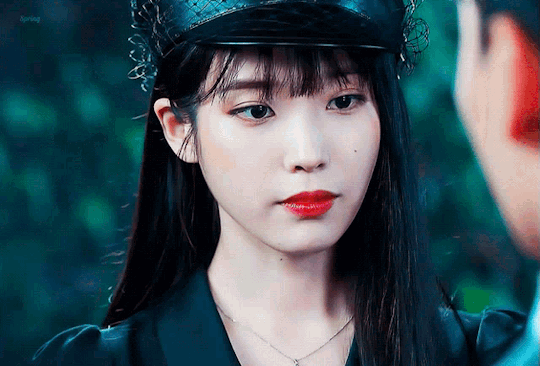
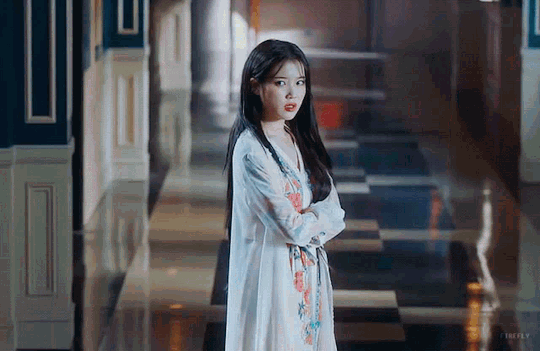
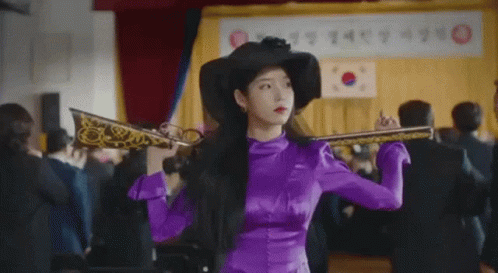
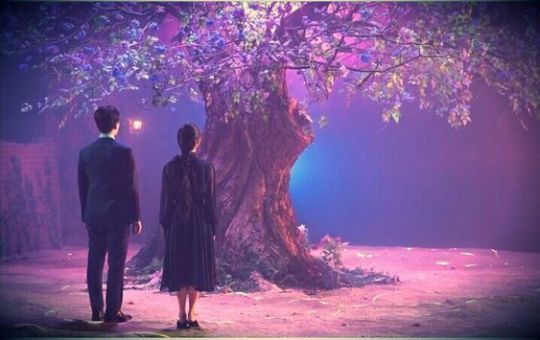
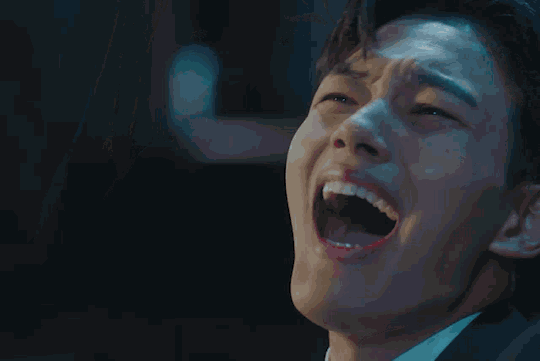
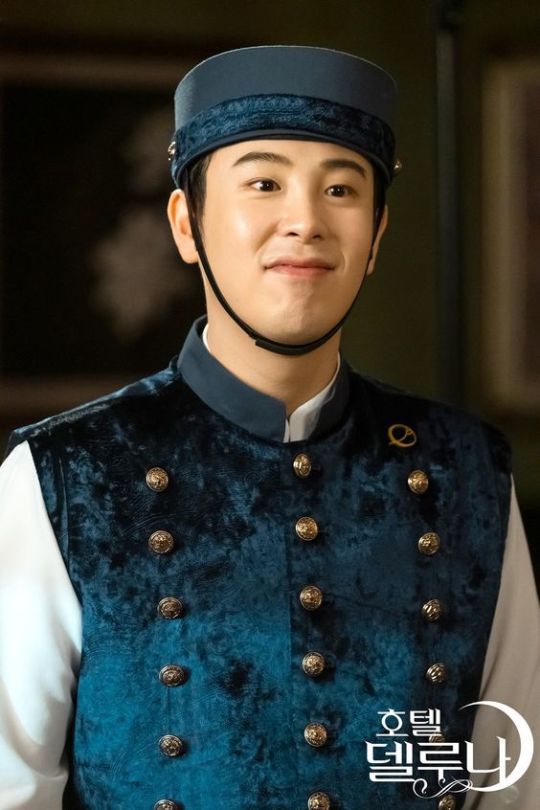

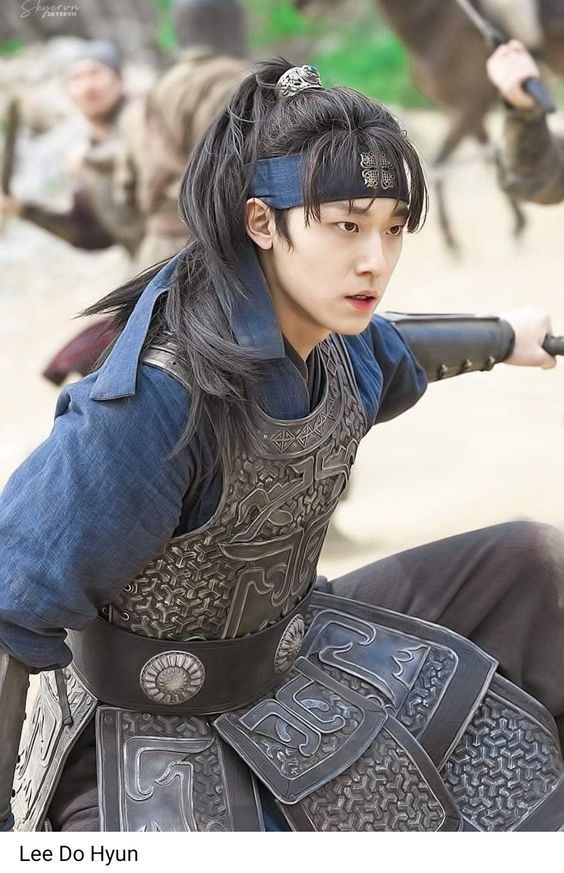

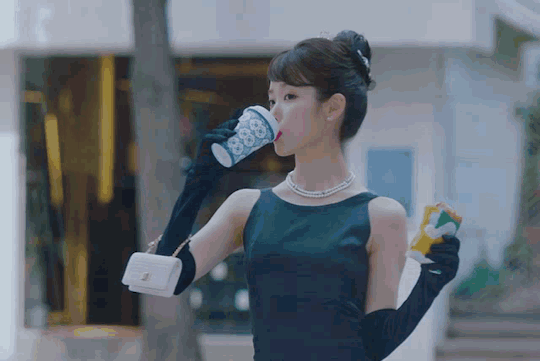

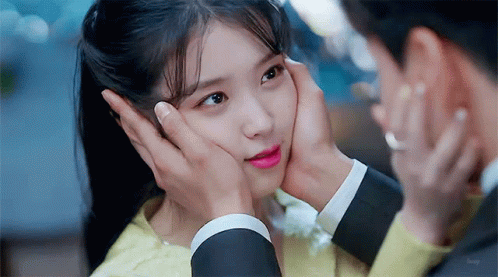

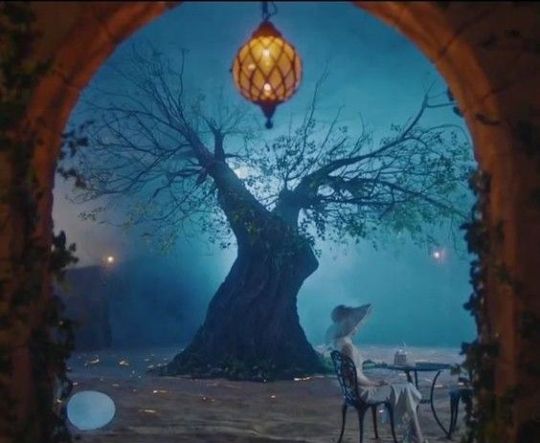
IU IN HOTEL DEL LUNA IS PERFECTION-
Hotel Del Luna is so aesthetically beautiful..
#iu#lee jieun#hotel del luna#hoteldelluna#manwol#kdrama#lee dohyun#p.o#block b#block b p.o#pyo jihoon#yeo jin goo#tvn#호텔 델루나
35 notes
·
View notes
Text








network: TVN
Tv show: Hotel del Luna - Episode 5
I love how Lee Ji-eun's character gets jealous in this episode.
4 notes
·
View notes
Text
𝗛𝗢𝗧𝗘𝗟 𝗗𝗘𝗟 𝗟𝗨𝗡𝗔⠀⠀👻⠀⠀﹟⠀⠀yeo jin goo gif pack .ᐟ by clicking the source link you'll gain access ( ꗃ ) to 470 gifs of the south korean actor yeo jin goo as koo chan-sung in the tvn show hotel del luna ( 2019 ) . all gifs were made by me from scratch , please reblog and follow my rules if you plan on using this pack . ੭
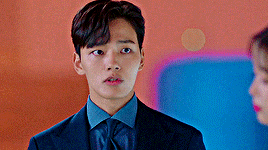



trigger warning ( s ) ⠀ ⸻ ⠀fainting .
you may : edit them , use in crackships , turn into gif icons — as long as credit is given !
don’t : claim them as your own , use to roleplay as real people / underaged characters , in smut threads — just don’t be shitty !
this is a free resource , consider buying me a ☕ if you can !
#yeo jin goo gif pack#yeo jingoo gif pack#rph#gif pack#fcxdirectory#gifpacknetwork#asiarph#gifsociety#thegifpackreblogs#dearindies#there's still some scenes to go through but honestly ... i got too bored of his face 😭 i feel like 470 is a good amount ..#i will finish this .. eventually
62 notes
·
View notes
Text
Jang Man Wol and Go Chung Myung as Eros and Psyche
In this meta, I will be illustrating how the storyline in the 2019 tvN K-drama Hotel Del Luna between its protagonist Jang Man Wol and second male lead Go Chung Myung follows the Aarne-Thompson-Uther folktale type 425: Search for the Lost Husband, while also containing elements of ATU-400: The Quest for the Lost Bride. In particular, I will be pointing out parallels to famous versions of these tales from Greek mythology: ATU-425: Eros and Psyche, and ATU-400: Orpheus and Eurydice. I am by no means an expert on this topic, so feel free to share where you disagree with me and point out any mistakes.
Before I go on, be advised: the following post will include mentions of violence, capital punishment, suicide, and all of the darker elements that were present in the historical subplot of Hotel Del Luna.
Part 1: Jang Man Wol and Go Chung Myung as Eros and Psyche
The myth of Eros and Psyche is said to be the prototypical version of the Beauty and the Beast story. Other tales classified under ATU-425 feature an Animal Bridegroom. After a taboo is broken, the animal husband flees from the bride, and she must complete a series of tasks or embark on a long journey to reunite with her lost husband.
A Mission Gone Awry:
The original version of Eros and Psyche comes from Apuleius�� Metamorphoses as a story within a story. The tale begins with the youngest and most beautiful daughter of a king and queen, Psyche, attracting so many admirers that people have started worshipping her instead of Aphrodite (Venus), the goddess of love. The jealous Aphrodite sends her son Eros (Cupid) to make Psyche fall in love with a hideous and wretched creature. However, rather than carrying out his mother’s bidding, Eros mistakenly pricks himself with his own arrow and consequently falls deeply in love with Psyche upon the sight of her sleeping form. In other words, the script gets flipped on Eros who is wounded by his own weapon.
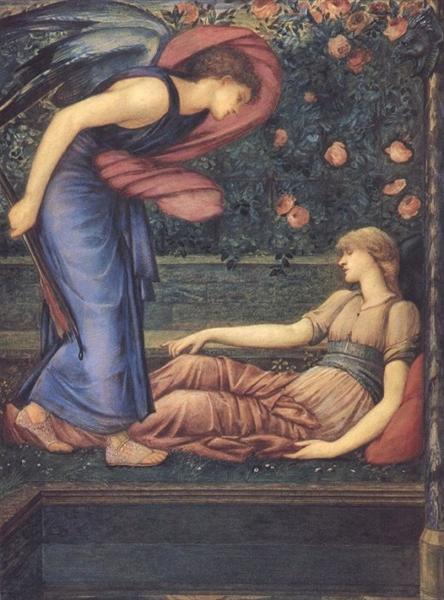
[Cupid Finding Psyche by Edward Burne-Jones]
Man Wol and Chung Myung’s first meeting bears a few similarities. After Jang Man Wol’s gang of bandits attacks Princess Song Hwa’s caravan, royal guard captain Go Chung Myung chases her down, intent on capturing the gang leader. However, instead of successfully carrying out this mission, Chung Myung becomes mesmerized by Man Wol’s beauty. Man Wol knocks him unconscious while he is distracted and takes him hostage. He is both held captive and captivated by her. Princess Song Hwa, the one who sent Chung Myung, will be playing the part of the jealous Aphrodite in this story.
In both stories, our heroine poses a threat to a royal/divine mother figure who takes this as a personal affront. A young man under her authority is sent to condemn the heroine to a dark fate. The hero fails to carry out this mission and ends up falling in love with the heroine instead.

Man Wol appears as if asleep à la Sleeping Beauty.

She flips the script on this lovestruck fool.
The Mythical Snake-Husband:
Eros, the god of desire, is feared even by Zeus, for a shot from his arrow fills his victims with uncontrollable infatuation often resulting in infidelity and adultery. He is sometimes described as a serpent who flies on black wings. It is meant to be understood that, in a way, Eros is exactly the kind of monster that Aphrodite wished Psyche to wed.
In other fairy tales classified under ATU-425, the bridegroom is a young man, often a prince, who has been transformed into a monster, animal, beast, etc. He may take the appearance of a bull, pig, bear, snail, etc., but most often he appears as a snake or a bird such as in the Mexican fairy tale El Pájaro Verde, or the Italian fairy tale The Enchanted Snake.
Most obviously, Chung Myung takes the form of an animal when his soul is eventually transformed into a firefly. But, unlike the heroes in Animal Bridegroom stories, Chung Myung begins his story as just a regular man, not a beast or monster. That being said, when his character is first introduced in the show (and to Man Wol), we see him as a fearsome warrior and formidable swordsman. As Man Wol’s captive, he flirts with her in an attempt to convince her to let him go. At first, it is unclear whether he is simply trying to pull a fast one on her, and for a moment it seems like he is going to leave her for dead when she gets caught in quicksand. His initial shiftiness as well as his lethal capabilities make him, metaphorically-speaking, akin to a snake.
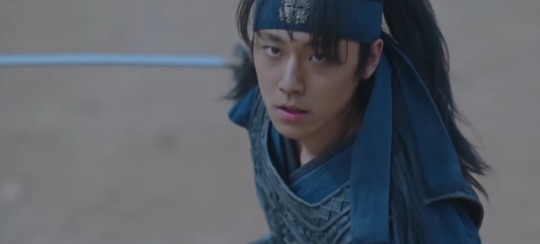
The Beautiful Lonely Heroine:
Psyche, the youngest and most beautiful of three princesses, is plagued by solitude. She despises her own beauty for making her singularly lonely. Even though she is widely adored, no one wants to approach her. She resents her virginity as it represents her loneliness and longing for romantic companionship.
It’s worth mentioning that in other Lost Husband stories, the heroine is often depicted as a paragon of idealized femininity: young, beautiful, unquestioningly obedient to her father, kind, gentle, self-sacrificial beyond reason. Compare that to her older sisters who are portrayed as vapid, jealous, and vain, the latter primarily for “turning up their noses” and refusing to marry an animal bridegroom unlike their younger sister who is inexplicably totally cool with it. These polarized depictions of femininity, while regressive and devoid of nuance, are commonplace in fairy tales, and the lack of depth could even be considered a defining genre convention (see Max Lüthi's criteria for märchen in The European Folktale: Form and Nature, particularly "depthlessness").
Although the fierce thief Man Wol doesn’t fit this model of idealized feminine heroine, she does have some things in common with her fair-maiden counterparts. She, too, suffers from loneliness, and, as a transient bandit, she is emotionally isolated. Apart from her foster brother Yeon Woo, she doesn’t allow others to get close to her.
In the first flashback shown of her past, she says that she envies trees because they don’t have to wander around. She laments that “it must be nice to just put down roots and settle down.”

Man Wol’s conversation with Yeon Woo in front of the great oak tree reveals that she longs for stability and a way to live past her youth, neither of which her nomadic life as a bandit can provide her. When Yeon Woo offers to build Man Wol a house out of the wood from the giant tree, she teasingly turns him down. Considering the great oak tree symbolizes Man Wol’s desire for longevity, that Yeon Woo specifically promises to cut it down demonstrates the impossibility of their situation. His words to Man Wol in this scene about transferring his extra years to her are poignantly prophetic:
Yeon Woo: We all grow old. You should think about putting down roots. I can’t let you live under a tarp when you’ve become an old lady.
Man Wol: I could be captured and killed at any moment. That’s my life. I don’t even expect to live until I’m old.
Yeon Woo: But you can. The fortune teller said that I’ll live a long life, just like this tree. I’m expected to live 100 years, so I’ll give you my extra years.
Man Wol: If you do that, you’ll die.
Yeon Woo: You’re right. It’s okay, though. I don’t mind dying for you, so you can have it all.
Not only does this scene foreshadow Yeon Woo’s heart-wrenching sacrifice on Man Wol’s behalf, but it also indicates that, under Man Wol’s current circumstances, a life must be “cut short,” be it the tree’s or Yeon Woo’s, in order to secure the longevity and stability she desires.
Whereas Psyche expressly wishes to find love, especially after her two older sisters are both married and she cannot find a husband, Man Wol's desires do not necessarily require love to achieve. However, “settling down” and “putting down roots” are conventionally achieved via marriage.
Merging of the Wedding and Funeral Rites, A Leap of Faith:
After consulting the Oracle of Apollo who tells them their daughter is to marry a hideous monster, Psyche’s parents assume this is a sure death sentence. In funeral attire, Psyche is taken to the edge of a cliff to be carried by the west wind Zephyr to Eros’s palace. She bravely accepts her fated marriage, takes the plunge, and encounters her mythical bridegroom in an enchanted palace in the forest. In blurring the lines between the wedding and funeral rites, death and love are depicted as intertwined.
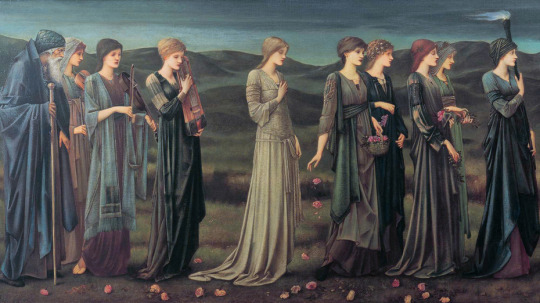
[Psyche’s Wedding by Edward Burne-Jones]
The most prominent moment when a wedding and funeral are merged in Man Wol’s backstory is during her deadly confrontation with Chung Myung in the royal bridal chamber. But more on that later. Sticking to this pair’s first meeting, a moment occurs that could be interpreted as her taking a leap of faith. Man Wol chooses to release her captive Chung Myung in hopes that he will save her from being swallowed by quicksand. In tossing him her sword so that he can cut himself free, she places her life in his hands. Chung Myung in turn, rather than escaping when he has the chance, saves his captor from the brink of death.
The Heroine Grows Affectionate toward her Nighttime Visitor:
Psyche is well provided for in Eros’s enchanted palace, but he only comes to visit her at night when it is dark and she can’t see him. Initially, Psyche is hesitant about the intimacy they share at night, but eventually she grows to enjoy those moments.
In other Animal Bridegroom stories, the groom takes off his animal skin/feathers in the heroine’s bedroom and reveals himself to be a handsome youth by night. The heroine grows fond of him and the private conversations they share together, but he must disappear with the rising sun.
Chung Myung meets Man Wol at the moonlit lake to share wine. At first, she is annoyed that he has disrupted her solitude, but he tells her that the view of the lake has gotten better since he arrived because she is no longer alone. Then, he says that in the future whenever she drinks there by herself, she will be waiting for him to show up like he did that night. These words prove true, as Man Wol evidently grows to crave Chung Myung’s company so much that she is willing to sneak into the Princess’s castle at the risk of her own life just to see him.

Due to the forbidden nature of their relationship, Man Wol and Chung Myung’s trysts must occur under the cover of darkness.
The Bride and Groom are Married in a Symbolic Union:
With their marriage consummated and a bond forming between them, Eros and Psyche are no longer married only in name. At this point, they are referred to as husband and wife, not just the bride and groom of a sham marriage.
While marital and botched proposal imagery are evoked at several points throughout Man Wol and Chung Myung’s love story (which I will discuss further down below), I would pinpoint the moment they become symbolically married as when they are seated together in front of the fire, and he signs her name with her finger on the surface of a rock. This is the scene in which their bond is cemented, quite literally, in stone, and their feelings for each other are made clear.


A Voice of Doubt Leads the Wife to Act Against Her Husband’s Wishes:
When Psyche’s sisters visit her in her luxurious palace, they sow doubt in her about the true form of her husband. They make her believe that her husband is truly dangerous and convince her to look upon Eros’s true form and kill him if he really is a monster.
In many Animal Bridegroom stories, the jealous sisters or an overprotective father may directly harm the husband, believing him to be devouring the bride at night. In other variants, the heroine asks about her husband’s origin, shares his secret identity with others, or looks upon his true form when he specifically forbade it. This constitutes breaking a taboo and/or a betrayal of the husband’s trust.
For Man Wol, the voice of doubt about her relationship with Chung Myung comes from inside herself rather than from an outside source. After Man Wol tells Chung Myung that she and her clan of bandits are leaving to join the rebellion, he offers to risk his life and run away with her. But she declines and breaks things off with him.

In this impersonal statement of rejection, Man Wol alludes to the external obstacles that stand in between this couple’s happiness: her clan joining the rebellion against the kingdom that Chung Myung serves, their difference in class and standing in the law, the imminent war that stands between their peoples, etc. Although these obstacles are great, they seem to be just excuses for what is really holding Man Wol back—the internal obstacles within herself.
Needing to have relied on herself alone for so many years, Man Wol is fiercely independent and unaccustomed to letting others in. Her doubts, perhaps self-doubts, and hesitancy in commitment are the real reasons for this “break-up,” not the meddling of pesky relatives as in other Animal Bridegroom tales. In fact, the character you would expect to play the role of an overprotective or jealous family member, Yeon Woo, is quite supportive of Man Wol’s relationship with Chung Myung, and even encourages her to follow her heart when he senses she might not come back from bidding Chung Myung a final farewell.
Yeon Woo (joining Man Wol at the foot of the giant tree): Everyone’s ready. When should we leave?
Man Wol (gazing at the jug with her symbol tied to the tree): He was here. He’s probably there now. Let me go see him one last time.
Yeon Woo (catching Man Wol’s wrists to hold her back): Man Wol-ah. Will you come back?
Man Wol: Yes. Of course, I’ll be back.
Yeon Woo (dropping Man Wol’s wrists, he gives a sheepish smile): You don’t need to come back. I’ll be fine either way, so do as you wish.
Breaking the Taboo, a Betrayal of Trust:
Psyche listens to her sisters who tell her to approach her husband with a lamp to see his true identity and a dagger to kill him if he truly is a monster. When Psyche follows through with this plan and sees Eros’s true form exposed, this constitutes a betrayal of his trust. In other Animal Bridegroom stories, the wife does the one thing her husband specifically forbids her from doing which is often sharing his secret with a nosy family member. At this point, he assumes his animal/beast form and flees his bride.
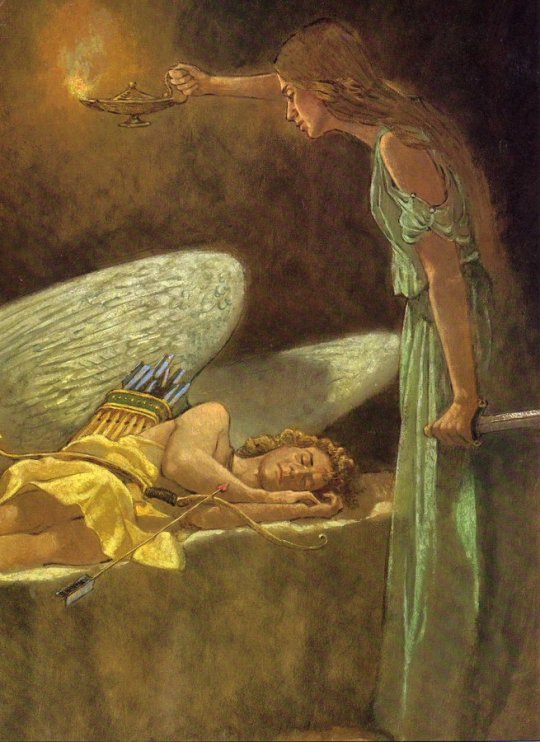
[From Favorite Greek Myths illustrated by Troy Howell]
This may seem counterintuitive, as Chung Myung is the one who ends up outright betraying Man Wol, but when Man Wol allows her fears and doubts to take hold of her and forsakes her love, this can be considered “breaking the taboo.” Her rejection of Chung Myung and of her true feelings leads to a series of events that results in Chung Myung’s “beastly” form being revealed—that is, his capacity for betrayal, deception, and acting in his own self-interest at the expense of those around him—i.e. the metaphorical qualities of a snake. This might sound like a circular line of thinking (it is), but I am framing this sequence of events in this way for the purpose of reading the story as a Search for the Lost Husband tale rather than a Quest of the Lost Bride tale in which the roles are reversed. On that note…
Part 2: Search for the Lost Husband or Quest for the Lost Bride?
(a.k.a. an aside in which I ramble on)
In a Search for the Lost Husband story, a betrayal such as Chung Myung’s on the part of the mythical husband would constitute a role reversal, and thus would be incredibly rare. However, a husband’s betrayal is commonplace in Quest for the Lost Bride stories. So, you might be asking yourself, other than switching the gender roles, how are ATU-425: Search for the Lost Husband and ATU-400: Quest for the Lost Bride stories different? Well, the biggest difference is in the story’s conclusion. A Search for the Lost Husband story usually has a happy ending with the couple reuniting, while the husband’s Quest for his mythical wife is usually unsuccessful. There are a few reasons for this, which I will get into later, but for now, all you need to know is that, in general, a betrayal by the mythical husband usually results in tragedy whereas a betrayal by the mythical wife usually ends with her successfully recovering her lost husband.
Because the love story between Man Wol and Chung Myung is ill-fated, in my interpretation, it follows the tragic Quest for the Lost Bride route. It includes hallmarks of tragedy such as a permanent separation of the mythical couple (as seen by Man Wol turning her back on Chung Myung on the bridge to the afterlife) and the husband wallowing away in grief and despair for the remainder of his days (as seen by Chung Myung remaining as a firefly for 1300 years only to cross the bridge by himself). However, as I hope to demonstrate in this meta, Man Wol and Chung Myung’s story also contains enough elements distinct to Search for the Lost Husband stories that, in my opinion, it could have gone either way, either ending with permanent tragedy for the pair, or happily with a love that transcended death. The show-writers were probably well aware of this, as the show itself seems to toy with the idea of Koo Chan Sung, the first male lead, being the reincarnation of Go Chung Myung, but eventually this is revealed to be a misdirection.
In addition to containing many unmistakable elements of ATU-425, Man Wol and Chung Myung’s story already sees many elements reversed anyway. It is Chung Myung, the hero, who is associated with royalty/nobility, not the maiden Man Wol. She is the one who is an outlaw and is shown to be quite ruthless, fierce, and scary, like the villainous Eros.
A critical aspect of the Eros and Psyche myth is that both Eros and Psyche must undergo joint journeys toward individuation. As a result, their journeys can naturally be thought of as parallel if not interchangeable. In this way, having Man Wol and Chung Myung move back and forth between the positions of Eros and Psyche, or “lost spouse” and “searching spouse,” does not actually contradict the story structure of the Eros and Psyche myth. Furthermore, often a husband’s failed quest for his lost bride serves as a prelude to a switch to the feminine perspective in which the wife’s search for her lost husband is successful.
We know that for as long as Chung Myung had remained with Man Wol as a firefly, she, too, had spent all those years waiting for him to arrive at her hotel. Given that the pair was mutually waiting for the other for over 1300 years and with a curse of her own for Man Wol to overcome, when Man Wol finally says Chung Myung’s name and he reappears before her, it seemed like all the ingredients were there for a successful recovery of the lost animal husband and the mythical couple reuniting in love and joy. This is also the moment when the flower petals of the Moon Tree finally fall, indicating that Man Wol’s punishment has come to an end. Despite this, the show still sticks to the unhappy Quest for the Lost Bride trajectory for this pair.
Typically in a Quest for the Lost Bride tale, the husband's betrayal is due to his fear, arrogance, or lack of faith in/faithfulness to his wife. These attributes are then harshly punished by the story’s tragic end for him. Although perhaps fear factored into Chung Myung’s decision to betray Man Wol, and arguably heedlessness into him getting caught in the first place, his reasoning for the betrayal, rather than highlighting a fatal flaw in his character, paints him as a victim of circumstance more than anything else. He was backed into a corner by the princess and coerced into betraying Man Wol against his own wishes while making a bargain for her life to be spared. It would seem that this betrayal was not about saving his own neck (he told Yeon Woo he was planning on paying for his sins with his life afterward), but rather saving as many innocents as possible (his relatives in the castle and the Gaori villagers).
As punishment for his misdeeds, Chung Myung dies by Man Wol’s sword and remains as a firefly, unseen to her for 1300 years, both of which were fates he elected for himself. Yet, after he finally has the chance to explain his side of the story to Man Wol, and she is able to make peace with what happened and let go of her grudges, for some reason the narrative isn’t through punishing him. Man Wol abandons him on the bridge to the afterlife, and the pair is separated forever after. The remorseful Chung Myung’s ultimate fate is characterized by eternal punishment and heartache for offenses that were deliberately portrayed by the narrative in a sympathetic light. This eternal punishment, in my opinion, comes off as exceedingly harsh, especially in contrast to other characters like Man Wol and Princess Song Hwa who had the blood of many on their hands, yet were both given happy endings in which they were able to find love again.
Part 3: Chung Myung and Man Wol as Eros and Psyche (cont.)
As much as a part of me relishes in the tragedy and melodrama of the storyline the show gave us with Man Wol and Chung Myung, my biggest qualm about its ending is that it retroactively suggests that Man Wol’s decision to forsake her love with Chung Myung was the right one? She alluded to the worldly barriers that stood between them when she told Chung Myung they could never be together. She spoke those words out of cynicism and guardedness, and she was at her least authentic to herself and her true desires when she said them. And yet, the narrative ultimately proves them correct? After a millennium had swept away the conditions that had made their love precarious and impossible in the first place, Man Wol still ended up being right: their love was not meant to be; it was never meant to be. (╥_╥)
The Husband’s True Form is Revealed, the Wife’s Love for him Deepens:
Psyche approaches her sleeping husband armed with flame and steel, prepared to kill him. When she discovers that he is the beautiful god Eros, she accidentally pricks herself with one of his arrows and falls even more in love with him. In other Animal Bridegroom stories, the wounded husband flees, and the distraught wife loves him so much that she is willing to walk to the ends of the earth, often until holes have been worn into the soles of iron shoes, to find him.
For Man Wol, there are two scenes in which she approaches Chung Myung equipped to kill him. The first plays the wife’s-love-deepening trope straight whereas the second directly subverts it.
In the first, Man Wol is hiding in a shed as a runaway slave. When someone enters the shed, she jumps out from her hiding place and blindly attacks the intruder with her dagger, unaware that it is Chung Myung. It is only when he catches her wrist mid-swing that she stops and sees his true identity. Her eyes quiver in recognition. The framing of this sequence—the use of slow motion, the soft music, the pair’s heavy breathing and parted lips, the symmetry of their silhouettes—indicate that this moment is especially significant; we are watching the moment when they fall for each other.
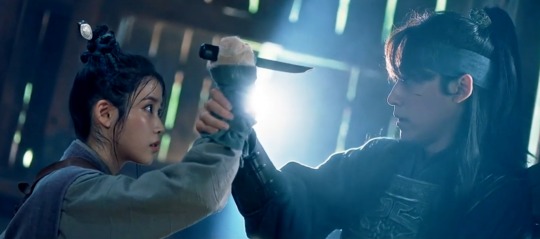
Afterward, Chung Myung protects Man Wol by telling the soldiers who are looking for her to search elsewhere. This is followed up by a scene of Chung Myung bandaging Man Wol’s wound, clear visual language for the care and tenderness between them.
The second time Man Wol is prepared to kill Chung Myung is, of course, in the royal bridal chamber. There, she intends to destroy him, particularly the “monstrous” part of him that is loyal and wedded to the princess. She wields her sword (steel), then burns the palace to the ground (with flame).
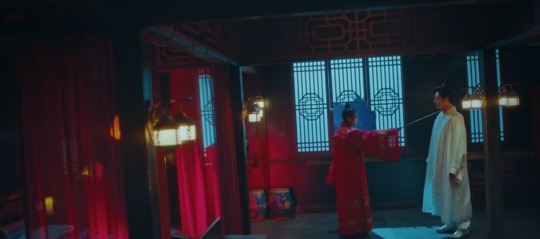
At this point in the story, Chung Myung’s loyalties had already been put to the test after he found himself at a crossroads when confronted by Princess Song Hwa. Seeing Chung Myung’s “true colors” revealed, Man Wol, rather than growing in love, grows in deep hatred of him.
A Harsh Light Exposes What Lies in the Darkness, The Snake Recoils:
The light from Psyche’s lamp reveals her husband’s true form. She becomes so startled that, in addition to pricking herself with one of Eros’s arrows, she spills hot oil from her lamp onto him. The wounded Eros recoils and retreats to the protection of his mother, Aphrodite.
Psyche had, quite literally, been kept in the dark about the identity of her invisible husband. When she casts his true form into the light, this can be read allegorically as her leaving a childlike state of ignorance behind and gaining a sense of consciousness. This new knowledge and awareness, although initially leading to pain and heartache, is ultimately necessary for Psyche—who represents the human soul—to individuate and enter true adulthood. Eros represents Psyche’s Shadow, her repressed desires that she fears to claim. When Psyche wields the knife and lamp, she strips back her own illusions and refuses to continue living in the dark. Psyche’s pursuit of Eros—the Soul’s pursuit of Desire—elevates her from her mortal status. The product of this union is a daughter named “Joy.”
One notable parallel to Man Wol and Chung Myung’s story is that Chung Myung, under the threat of never seeing Man Wol again, leaves the signal to meet at the lake where he awaits her with what appears to be a token of betrothal.
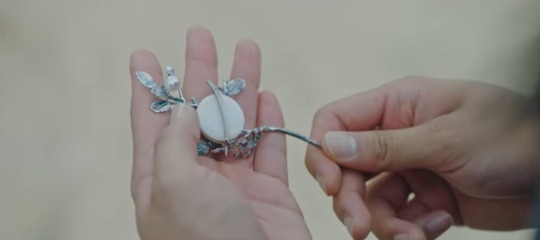
He is exposed in the sense that he sets up this meeting in broad daylight for a change, as well as in that Princess Song Hwa arrives first to expose him as a colluder with the rebellion and a traitor to his country. Under duress, he retreats to the side of Princess Song Hwa who corresponds to Aphrodite.
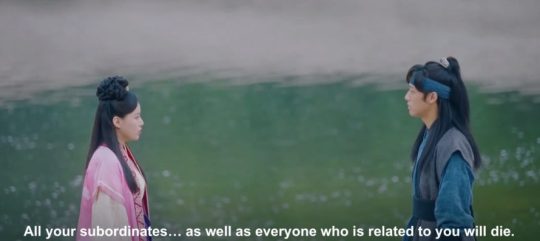
However, I think the comparison becomes much more interesting if we think of Man Wol as the snake-like Eros and Chung Myung as the light-bearing Psyche. Chung Myung—the man who was transformed into a firefly and whose name (hanja: 清明; pinyin: qīngmíng) translates to “Pure and Bright”—is the light that reveals Man Wol’s true self. He draws out her capacity to be warm-hearted despite her cynicism. Man Wol (hanja: 满月) is the “Full Moon” whose glow is only a reflection of the light cast upon it (from the Sun. Yes, I’m invoking Yin and Yang here). Man Wol cannot hide her true self from Chung Myung because he sees through the front she puts up and the walls she has built around her. She shows discomfort with this vulnerability such as after Chung Myung surmises that she came to see him in the castle because she had missed him while drinking alone.

When Chung Myung offers to run away with Man Wol, his light shines too brightly, and she recoils from him. But we know she is acting against her true desires as seen by her tearful look as she watches him leave and by her impetuousness to see him one more time. The break-up scene between Man Wol and Chung Myung presents a moment in which Man Wol must confront the desires that she has been desperately trying to conceal from herself but outwardly manifest in the form of Chung Myung.
In forsaking her love, Man Wol acts in fear of her desires. On the other hand, this break-up can simultaneously be viewed as an act of Man Wol’s agency to make decisions about her own life. She is well within her rights to end this relationship as it had always been incredibly risky, even scandalous, for both involved. Chung Myung had been looking the other way and, at times, actively helping out a gang of criminals. Man Wol had been placing her trust in someone whose job it was to arrest and capture people like her. Her reasons for joining the rebellion—it’s better than living as a thief, getting caught, and dying young—see her taking steps toward achieving the stability and longevity that she wished for. It’s just that she couldn’t conceive of a way to achieve these things while keeping Chung Myung at her side (when arguably this may have been possible). I also think that Man Wol truly thought that putting her feelings aside and breaking things off between her and Chung Myung was the safest decision for the two of them. In a cruel twist of irony, however, this indirectly leads to the catastrophic series of events that occurred in the fallout of their relationship that the break-up was intended to prevent.
In my opinion, Man Wol’s character arc on the show, in addition to resolving her deep grudges and healing from her past, should have involved her learning not to run away from her desires and integrating her Shadow/animus.
The Wounded Husband Flees and is Confined, the Heroine is Tormented:
The injured Eros is looked after by his mother Aphrodite who confines him in her house for far longer than he wishes or is necessary for him to recover. As Psyche continues to seek her lost husband, the furious Aphrodite drags her by the hair and has her whipped and tortured by her lackeys Sadness and Sorrow.
In other versions of ATU-425, the fleeing husband becomes fatally ill or is about to be married off to another bride, often a monster or ogress who, like Aphrodite, holds him against his will. Symbolically, these two fates are the same as the prince’s illness is akin to being wedded to Death. Typically at this point, the heroine arrives just in time to cure her lost husband or rescue him from a loveless marriage.
After Man Wol’s rejection, Chung Myung returns, against his wishes, to the side of Princess Song Hwa. When Man Wol rides to the lake seeking him, she encounters Song Hwa instead who gleefully has her arrested while mocking her as the cause of her people’s demise.

As a quick aside, Princess Song Hwa is wearing a completely different robe when she confronts Man Wol from the one she wore when confronting Chung Myung at the lake which could indicate that a significant amount of time passed between these two occurrences. They may have even taken place on different days, meaning Man Wol arrived much too late.
Chung Myung is forced to marry Song Hwa even though his heart still belongs to Man Wol. Our heroine Man Wol arrives on the night of the wedding to kill him rather than to rescue her mythical husband from his marriage to the Death-bride.
The Heroine Undergoes an Arduous Journey to Reunite with her Lost Husband:
In order to see Eros again, Psyche must complete four seemingly impossible tasks given to her by the angry Aphrodite (in other tales it’s usually three impossible tasks, but Aphrodite is extra mean and gives Psyche a fourth). Eros’s hand is present in the assistance she receives for each task—in the ants, river spirits, eagle, and tower that come to her aid. The completion of these tasks credits Psyche for her bravery and persistence, and therefore she is presented as worthy of her divine husband. The details in other ATU-425 stories vary widely but are largely unimportant. Typically, the heroine will have to travel a great distance, collect magical items, and accept supernatural aid in order to recover her lost husband.
After the deadly night of the royal wedding, both Man Wol and Chung Myung have long journeys ahead of them to atone in some way for the sins they committed in their lives. Man Wol becomes cursed as the owner of the Guest House of the Moon and receives assistance in the form of Koo Chan Sung who himself receives guidance at pivotal moments from Chung Myung’s ghostly insect form.
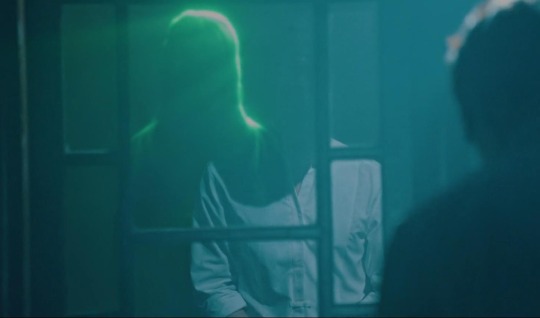
This struck me as similar to how Eros is present in the small insects—ants—who help Psyche complete the first task of sorting out the grains. Chung Myung’s unwavering persistence in remaining at Man Wol’s side as a firefly is shown to have impressed Mago and even the Grim Reaper.
A “seemingly impossible” task needs to be accomplished for both Man Wol and Chung Myung’s curses to be lifted: the Moon Tree must bloom and wither flowers—meaning Man Wol’s heart must soften—for time to flow for her once again; for Chung Myung to regain his human form and appear before Man Wol she must utter his name, a feat rendered seemingly impossible due to Man Wol’s deep-seated resentment.
A Trip to a Realm only Accessible to the Dead, Another Way:
When Psyche is successful in completing three impossible tasks, Aphrodite makes one final attempt to get rid of her. Psyche must descend to the Underworld and bring back a piece of Queen Persephone’s beauty in a box to be delivered to Aphrodite. At first, Psyche believes that the only way to reach the Underworld is to die, so she prepares to fling herself from a tower. But Eros speaks to Psyche through the tower, instructing her on another way to enter the Underworld. He gives her highly specific instructions as well as coins for the boat ride across the river Styx. She must not deviate from these instructions lest she remain trapped in the Underworld forever.
Wanting absolution for all the lives she took, Man Wol journeys to the end of the road in search of the mythical Guest House of the Moon where the souls of the dead gather and are consoled. As the afterlife in this story leads to reincarnation and new life, it does not correspond to the Underworld; the Guest House of the Moon is more of an equivalent as it is a mythical, if temporary, abode for the souls of the dead. When Mago tells Man Wol that only the dead can go there, Man Wol draws her sword to her own neck, saying she is willing to take her own life just to get there.

Mago tells Man Wol that it is foolish to think she can compensate for her sins with her life this way. Man Wol becomes tied to the Moon Tree instead, caught between life and death and cursed to serve as the innkeeper of the Guest House.
Just like Man Wol, Chung Myung believes the only way he can pay for the debt of his wrongdoings is with his own life. It is the voice of Yeon Woo that stops Chung Myung from doing this and insists there is another way for him to pay for his sins—he must live on as a traitor to ensure that Man Wol survives.
Traps and Risks in the Underworld:
Several traps lie in Psyche’s way as she journeys to Hades, chiefly if she opens the casket containing Persephone’s beauty out of curiosity she will never return from the Underworld.
The biggest trap set for Man Wol is the possibility of her giving into her anger and resentment, becoming an evil, spiteful ghost and vanishing forever. This would mean she would never leave the Underworld of the Guest House or move onto the afterlife to be reborn.
Chung Myung, who is also stuck in this Underworld as Man Wol��s first guest, also faces a great risk there. Over the 1300 years, his soul has become weary and his light has faded. With little energy left, he may vanish before reaching the bridge to the afterlife.
Facing Temptation, Return from Death’s Clutches:
Psyche carefully follows all of Eros’s instructions and manages to escape the Underworld. Thinking she has succeeded, Psyche wishes to take some of Persephone’s beauty for herself to please her husband. But what’s in the box is the Sleep of Death, and she falls down lifeless. Eros, who has healed and can no longer bear Psyche’s absence, breaks free from his prison and wipes the sleep from her eyes.
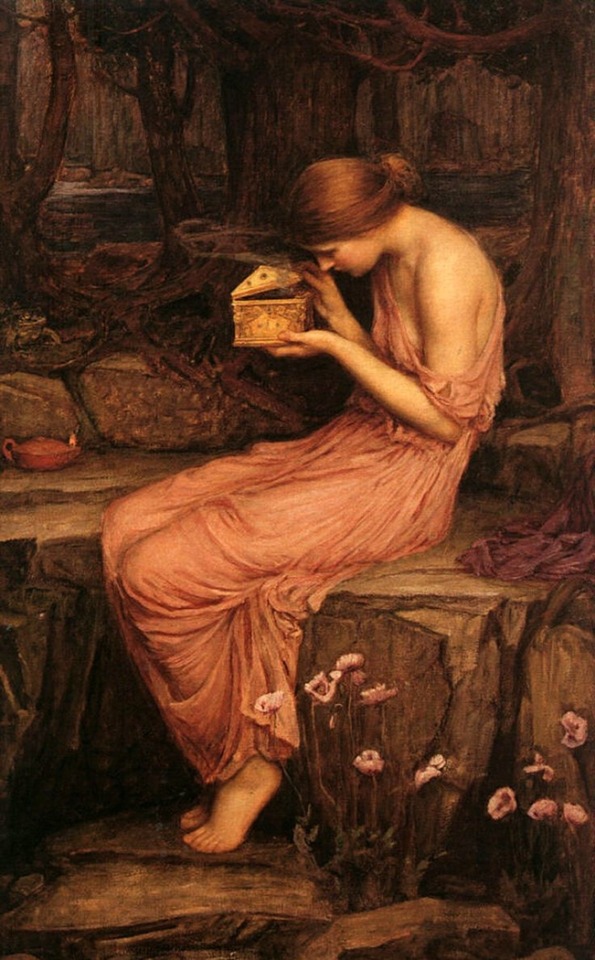
[Psyche Opening the Golden Box by John William Waterhouse]
In other versions of ATU-425, the prince is on the brink of death or about to marry another woman when his wife finds and rescues him. To save the lost husband, the heroine must perform a task that only she can do, or use a blood sacrifice to cure his affliction. In this way, she is uniquely able to save him from a literal/spiritual/metaphorical death.
Chung Myung’s marriage to a false bride is interrupted by Man Wol who infiltrates the castle intending to kill him. In some cases, such as with a snake-husband, a violent means is necessary to break the curse. With a snake, death or burning of the snake’s skin are typically the only ways for the snake-husband to be transformed back into his true self. Since Chung Myung has taken on the metaphorical qualities of a snake, it could be argued that only by dying and the subsequent burning of his body can he regain his humanity. Thus, Man Wol’s decisions to slay Song Hwa, the Death-bride, run Chung Myung through, and burn down the castle, while ruthless, are not, by themselves, mythically inconsistent with the ATU-425 folktale type.
1300 years later, Man Wol knows that her encounter with Chung Myung is inevitable, and she must face her temptation to give into her anger, destroy his soul, and vanish forever. However, after hearing his side of the story and learning of the promise he made to Yeon Woo, Man Wol’s anger dissipates. She is seemingly able to forgive Chung Myung, or at least let go of her resentments toward him.
The one final task that Man Wol is assigned by Mago is one that only she can accomplish: she must see Chung Myung off and accompany him on the bridge to the afterlife, thus saving him from vanishing forever i.e. spiritual death.
Recognition Motif:
After the heroine rescues her lost husband, typically there is a moment when the prince finally recognizes the heroine after their long separation and declares her his one true wife. The lost husband may not recognize the searching wife until she performs the one task that only she can do or until she shows the lost husband a gift she once received from him.
Apotheosis, Sacred Marriage, Happily Ever After:
A moment of recognition on Man Wol’s part occurs when Chung Myung’s ghost, while in possession of Chan Sung’s body, caresses Man Wol in a hauntingly familiar way. Later, she realizes that the firefly is Chung Myung who has been with her all along. She says his name, and he appears before her. A moment of recognition on the part of would-be prince Chung Myung happened much earlier in the bridal chamber when he said he wished to welcome Man Wol as a beautiful bride (his true bride).
Eros and Psyche have a proper wedding that is blessed and attended by all the deities. She eats ambrosia which makes her immortal so that the pair can be united for eternity as equals. Psyche, now a deity in her own right, gives birth to a daughter named Hedone or “Joy.”
Man Wol and Chung Myung walk down the bridge to the afterlife together, but stop midway. There, on the edge of eternity, Chung Myung offers Man Wol his hand in symbolic union one last time. He pleads with his eyes for her to join him and move on together, but she turns her back on him, departing from the mythic structure and leaving him to cross into oblivion by his lonesome. This is how their story ends.
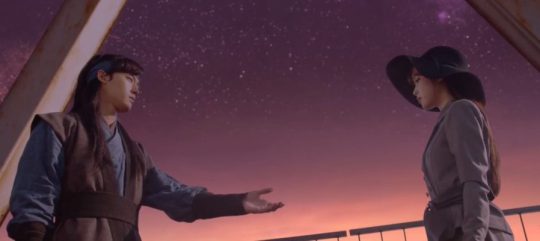
Part 4: More Parallels and Discussion
The Husband is Rebuked by the Cruel One who Sent Him:
When Aphrodite learns that Eros fell in love with her enemy Psyche rather than dooming her to fall in love with a loathsome monster, she rebukes him as a failure. Aphrodite sees Psyche as a direct threat and is fearful of being usurped by her.
When Song Hwa finds out that Chung Myung has fallen in love with an enemy and has been in league with Man Wol’s gang of bandits instead of quashing them, she chastises him as a traitor to his country, then blackmails him into doing her bidding and rounding up the thieves. Song Hwa and her father view Man Wol and her thieves as an existential threat to their kingdom. Like Aphrodite, Song Hwa is afraid that she will be usurped by Man Wol in two ways: first, she is afraid of a resurgent Goguryeo overthrowing her kingdom; second, she views Man Wol as a romantic rival for Chung Myung’s affections.
The Beauty Repeatedly Rejects the Beast’s Marriage Proposals:
As there is strong overlap between Beauty and the Beast type stories and Animal Bridegroom stories, ATU-425 stories can be read in those terms. Just as how Eros was the one who was pricked by his own arrow at the sight of Psyche, the Beast is the one who falls in love with the Beauty first, whereas the Beauty only starts to fall in love with him as she sees past his veneer and looks into the man who is inside. The couple’s momentary bliss, however, cannot last, as the Beast is not ready to let go of his brutish exterior. When he clings to his literal or metaphorical beast-form, the Beauty must reject him. (Think Jane fleeing Rochester after his bigamy is discovered in Jane Eyre.) It is only after he makes some kind of self-sacrifice on her behalf, often involving a literal/metaphorical death and rebirth, that the Beauty finally professes her love to him. Often this declaration of love is all it takes to heal him from the brink of death.
Man Wol rejects Chung Myung’s “marriage proposals” on three separate occasions. First is when he offers to run away with her when she is about to leave to join the rebellion.

This botched proposal is prolonged; Man Wol initially rejects Chung Myung, but when he leaves the signal to meet at the lake, two details imply that, had she arrived on time, Man Wol may have changed her mind: 1) As mentioned previously, Yeon Woo seems to doubt that Man Wol will return from bidding Chung Myung a final adieu, and 2) while wallowing in self-loathing and speaking to a past version of herself, modern-day Man Wol says that she would have been happy to have received the metal brooch Chung Myung intended as a gift for her. Regardless of whether Man Wol would have changed her mind or not, Chung Myung’s attempts to risk his life and elope with Man Wol fail, and we see how things go horribly awry when the princess arrives at the lake to confront Chung Myung before Man Wol can reach him.
Man Wol rejects an overt insinuation of a marriage rite during her confrontation with Chung Myung in the chamber where the royal marriage was supposed to be consummated. He invokes the image of them as the true bridal couple by referring to Man Wol as “a beautiful bride” whom he missed and wished to caress. She is not receptive to this and reasserts her blade against his neck.
The last time Man Wol rejects Chung Myung’s hand in a metaphorical marriage is on the bridge to the afterlife.
The first of these botched proposals happens due to Man Wol’s hesitancy, fears, and doubts, as well as Song Hwa’s interference.
The second rejection in the bridal chamber is the most mythically consistent because Chung Myung is already wedded to a death threefold—1) Song Hwa as the Death-bride, 2) the imminent physical death promised to him by Man Wol, and 3) the spiritual death of living as a traitor to himself and his desires. Also, while Chung Myung’s undying love for Man Wol is on full display in this scene, at this point, he can be interpreted as still clinging to his snake-form since he continues to provide Man Wol with no explanation for his actions.
In choosing Chan Sung over Chung Myung, Man Wol only accomplishes one of these things. She turns her back on her painful past, closing that chapter in her life. But her choice does not lead to lasting joy, at least not in that lifetime, as shortly thereafter she must depart for the afterlife herself and leave Chan Sung behind. Furthermore, Man Wol’s love with Chan Sung makes no statements about an older versus newer way of doing things because Chan Sung is from Man Wol’s present. Chan Sung represents a fresh start for Man Wol unfettered by her personal past, but he does not necessarily represent a rejection of the precepts of the past more broadly.
As for the last, after 1300 years Chung Myung has finally gone through his transformation and is restored from a firefly back into a man. Man Wol rejects him on the bridge, not because he is still part-Beast, but because she has fallen in love with someone else—a departure from this story structure. This is the point at which the mythical couple, now more worthy of each other after their trials and tribulations, is typically joined in an alchemical union which gives birth to “joy” along with freedom from the pains of the past and the older generation’s way of doing things.
Compare this to a reunion with Chung Myung that would have transcended time, death, clan, class, war, ill-fate, heartache, misunderstanding, resentment, and all the other seemingly insurmountable obstacles, both manmade and metaphysical, that stood in the way of this couple’s happiness. A happy ending for this couple would signify that love is more powerful than any obstacle, that true love finds a way even when there seems to be none, and that a love that is forbidden in its time is only considered taboo due to the small-mindedness of people.
On the Bridal Chamber Scene:
I just wanted to elaborate more on how this scene merges the wedding and funeral rites. Man Wol attempts to kill Chung Myung here, but when she hesitates, he takes his fate into his own hands and sacrifices himself by running himself through. Apart from this literal self-sacrifice, Chung Myung also puts his own wants and needs aside in favor of Man Wol’s by saving Chan Sung on the tunnel to the afterlife and facilitating his reunion with Man Wol.
The final duel between Man Wol and Chung Myung takes place in the room where a marriage was supposed to be consummated. After killing Song Hwa, Man Wol disguises herself in Song Hwa’s bridal garments, clearly playing upon the idea of a false and true bride. Song Hwa’s bridal gown is rightfully hers, but in terms of her marriage to Chung Myung, she is only dressing the part. Meanwhile, Man Wol’s appearance in these bridal robes is false—it’s a ruse—but at heart she is Chung Myung’s true bride.
I find the decision to don the bridal attire on Man Wol’s part fascinating. Even if it wasn’t her intention, it’s as though she’s claiming her rightful place as Chung Myung’s intended bride. She even goes to the trouble of unveiling herself in the same way that Song Hwa did when she expected to be greeted by Chung Myung.
Even if on a conscious level, Man Wol only wore the bridal garb in order to catch Chung Myung off guard or to vindictively shove in his face what they could have been, her “disguise,” on some level, reveals her true aspect. Man Wol may, in a literal sense, be merely occupying Song Hwa’s place in the royal bedchamber, but in this same act, she is refusing to let Song Hwa supplant her at Chung Myung’s side. Ultimately, Man Wol’s effort to catch Chung Myung off guard backfires because he uses it to garner her sympathy and demonstrate that he still loves her.
Furthermore, after Chung Myung breathes his last, Man Wol is left feeling shocked, hollow, and empty. It might have been easy to miss, but she appears to mourn his death. She even sheds tears for him, and perhaps, for herself and what she’s become.
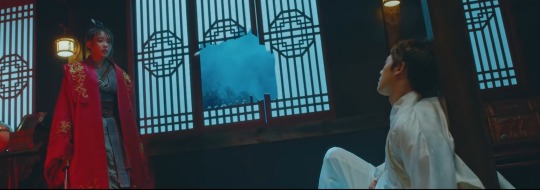
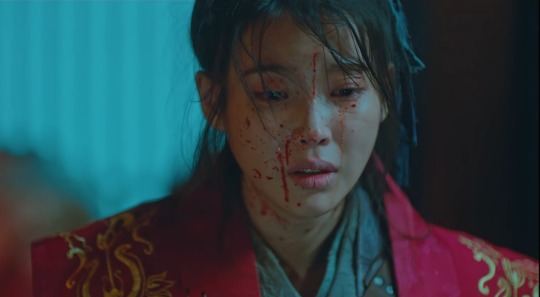
This isn’t the triumphant face of someone who just enacted her long-awaited revenge over an enemy; this isn’t even the face of relief over not having to kill someone she wasn’t sure she could bring herself to kill. This is the face of mourning.
I might be wrong about this, but the music that plays over their final exchange of words is reminscent of Lacrimosa from Mozart’s Requiem. This dirgeful piece of music is part of a funeral mass setting. Additionally, this piece of music is associated with the following sculpture by Antonio Canova.
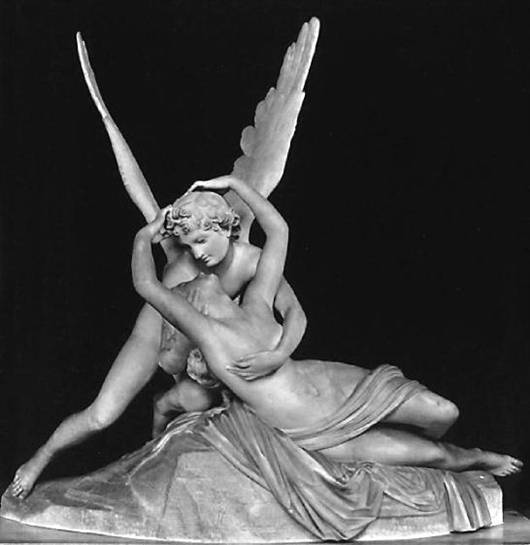
[Psyche Revived by Cupid’s Kiss]
This famous sculpture depicts the moment when Eros revives Psyche from the Sleep of Death.
Was the choice to evoke this particular piece of music composed for funerals and associated with the Eros and Psyche myth over the bridal room scene simply a coincidence? Honestly maybe, I might be reaching with this connection ahaha.
Beethoven’s famous Moonlight Sonata then starts playing as Chung Myung’s hand reaches to hold the back of Man Wol’s head. This song also notably has the somber character of a funeral march. These same notes are played during the opening sequence of the show as Man Wol travels with the coffin containing the trinkets of her deceased friends in search of the Guest House of the Moon, which is a kind of funeral procession.
Healing the Wounded Masculine:
The heroine’s ability to save her lost husband from a dark or deathly fate is a testament to her power and the strength of her love. This can be read as a literalization of the point in Murdock’s Heroine’s Journey at which the wounded masculine is healed then subsequently integrated with the feminine in a “sacred marriage” that transcends the masculine-feminine duality.
Man Wol already acts to heal Chung Myung by letting go of her resentments toward him and accompanying him on the bridge to the afterlife. She saves him from an eternal spiritual death in the form of vanishing, thus healing the outer wounded masculine (Chung Myung). Man Wol’s self-loathing could constitute her inner masculine that needs healing as well. It can be inferred from the scene in Episode 14 in which Man Wol talks to a past version of herself that she blamed herself for the death of her people and believed that she was foolish to have ever fallen in love with Chung Myung. The curse that she creates for Chan Sung when she suspects he is Chung Myung’s reincarnation takes the form of a shadow-version of herself.
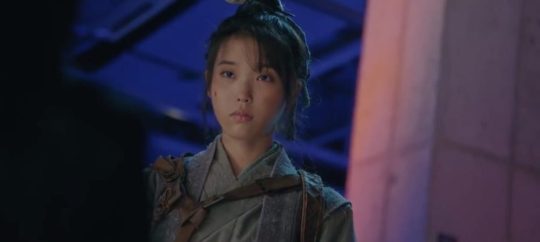
This deep bitterness that Man Wol harbors for her past self is presumably destroyed along with the metal ornament when it is dissolved by her tears at the end of her long-awaited meeting with Chung Myung—note how this differs from the recognition motif in which the heroine shows her mythical husband a gift he had once given her, and then he recognizes her as his one true bride. In this way, the shadow-version of Man Wol, her wounded masculine, is resolved by coming to accept that Chung Myung truly loved her and wasn’t playing her for a fool the whole time. This point would have been spelled out further if Man Wol accepted and returned Chung Myung’s love—if both the outer and inner halves were integrated in a “marriage.”
A Refusal to Live in the Dark:
Psyche’s refusal to live in a state of childlike ignorance/dependence is what launches her out of a state of unconscious and onto her journey. Eros likewise spends much of the story under the thumb of his overbearing mother, and he, too, must undergo a journey toward individuation. Eros and Psyche’s stories complement each other, and they must overcome similar flaws in temperament.
Man Wol launches herself into consciousness by choosing to join the rebellion. No longer satisfied with a life doomed to be cut short, she rejects her life as a thief and takes steps to achieve longevity past her youth. For Chung Myung, refusing to continue living a lie means pursuing his love even unto death, defecting, and quitting serving a princess and despotic kingdom to which he holds no strong affinity. It means following his heart and returning to the land of his forefathers (recall that Chung Myung mentions that his family originally hails from Goguryeo and jokingly says that he and Man Wol could be kin—hence, his term of endearment for her is “nui” or sister).
Both must be courageous to extricate themselves from the false families they have built for themselves, even if it initially leads to pain. For these risks, they should be rewarded with a joyous reunion. Instead, their story ends in infinite separation which, in the language of a Search for the Lost Husband story, means that one of the two is still being punished.
Different Taboos Yield Different Endings:
Earlier, I alluded to the fact that ATU-425: Search for the Lost Husband tales more often end happily while their ATU-400: Quest for the Lost Bride counterparts usually end in tragedy. One explanation for this can be found in Barbara Fass Leavy’s observation that taboos imposed on mythical husbands and mythical wives are different. For this part, I’ll borrow the words of Tumblr user @allgirlsareprincesses from her post about The Death of Love and the Lonely Soul in TROS:
In her book on swan maiden tales, author Barbara Fass Leavy points out that the taboos imposed on mythical husbands are different than those imposed on mythical wives. Men, for example, are most often prohibited from abusing their fairy brides, while women are prohibited from looking upon their fairy husbands or knowing their true identity. Leavy states: “In general, taboos imposed on the wife in Cupid and Psyche tales are often intended to keep her in her place, to prevent her from achieving some autonomy by knowing who her husband is, seeing him, or being able to disclose his identity to others.”
As these taboos are reflective of a patriarchal context, the difference in these taboos suggests an inherent imbalance in the relationship between husband and wife. Men are instructed not to abuse their power, whereas women are advised not to challenge their husbands’ authority or demand a more equal relationship. However, what is subversive about these fairy tales is that, despite breaking these taboos and challenging male authority, the women in these stories ultimately defy death. They are able to recover their lost husbands and are even elevated to royal/divine status for their courage and tenacity, thus entering into more equal marriages with their husbands.
In Man Wol and Chung Myung’s relationship, there is a clear power imbalance. As a bandit, Man Wol is on the wrong side of the law, and as a lowly migrant, she lives on the margins of her kingdom in a constant state of instability and upheaval. Meanwhile, Chung Myung, while originally of a humble migrant background, rose through the ranks to captain an arm of the kingdom’s military. He is the one in a position of power, power which he initially wields to protect Man Wol but is soon twisted against him. And yes, while Man Wol herself is the leader of her clan, her authority’s legitimacy pales in comparison to Chung Myung’s when he is favored by the princess and aligned with the royal crown.
This power imbalance is leveled on the night of the royal wedding. Chung Myung’s power is stripped from him in death as he is transformed into a pitiful firefly. Man Wol, a woman on the run, is on her way to a kind of death that awaits her as the owner of the Guest House of the Moon. Frozen in time, Man Wol becomes ageless. Unlike the immortality that is granted to Psyche which unites her to Eros as equals, Man Wol’s immortality is an everlasting punishment. Still, as owner of the Guest House of the Moon, Man Wol gains some special abilities which are showcased throughout the course of the show. She is able to influence the fate of Chan Sung’s father who appears to her on the verge of death and is able to magically protect Chan Sung at several points.
When Man Wol finally says Chung Myung’s name, he briefly appears to her as he did in his life as man without armor. It is during this long-awaited encounter that the petals of the Moon Tree fall, indicating that Man Wol has regained her mortality and must serve as the owner of the Guest House no longer. Afterward, Chung Myung is transformed back into a firefly, and he is not strong enough to make it to the bridge to the afterlife on his own. He is at the mercy of Man Wol who, after letting go of her ill-will toward him, agrees to accompany him to the afterlife. On the bridge crossing the Samdo river, Chung Myung appears as a man once more. He reaches his hand out to Man Wol and offers her the option to move onto the afterlife together, united in death on equal footing at last.
Part 5: Chung Myung and Man Wol as Orpheus and Eurydice
I’ll try to keep this section brief since this post is already way too long as it is. As mentioned previously, when the gender roles in a Search for the Lost Husband story are reversed, the tale more often than not ends in tragedy. So, since the love story between Jang Man Wol and Go Chung Myung is a tragic one, it can fairly easily be read as a Quest for the Lost Bride-type story. The famous version of this story in Greek mythology is the tragedy of Orpheus and Eurydice. While it bears some similarities to the Eros and Psyche story, including a treacherous trip to the Underworld, Orpheus and Eurydice centers a masculine perspective as opposed to a feminine one.
In the Greek myth, the union between Orpheus and Eurydice is doomed from the outset. Hymen, the god of marriage never blesses their wedding. In other Lost Bride tales, the powers that be may forbid the union (due to caste, clan, parent’s wishes, etc.) so the marriage must take place in secret.
After being bitten by a venomous snake, Eurydice dies and descends to the Underworld. In other Lost Bride stories, a separation between the husband and wife pair occurs when the wife dies during childbirth or after a betrayal on the part of the husband at which point the bride retreats back into her animal/swan form. With the bride lost or trapped in the Underworld, the husband must begin his quest.
The devastated Orpheus wallows and roams the earth, playing mournful songs on his lyre. Our hero descends to the Underworld and appeals to Hades and Persephone to return Eurydice to him. They agree but tell him that Eurydice must walk behind him on their way out of the Underworld. Orpheus is warned that he must not look back at her or else she will remain as a shade in Hades forever.
The hero swears he will obey whatever condition is put upon him, but he ultimately fails. Orpheus gives into the temptation and looks back to see if Eurydice has lost her footing. This “look back” is the equivalent of the breaking of the taboo from Lost Husband stories; it signifies a loss of faith or an inability to resist the lure of power or another lover.
Unlike the Search for the Lost Husband which rewards its heroine for her persistence with passionate love, the Quest for the Lost Bride contains harsh punishment for the failures of its hero. Orpheus loses Eurydice forever, and upon returning from the Underworld, he is torn to pieces by followers of Dionysus. His head floats down a river to the island of Lesbos to always sing sorrowful songs.
Another version of the Lost Bride story that I would like to highlight is from perhaps the most famous ballet of all time, Swan Lake. The ballet is about a princess named Odette who has been cursed by an evil sorcerer to remain a swan by day and a maid by night. The curse over Odette can only be broken if someone who has never loved before swears to love her forever. When the young Prince Siegfried, who has just come of age, stumbles upon the enchanted lake where Odette resides, the pair falls in love. Siegfried invites Odette to the ball his mother is holding the following evening in which he is supposed to select his bride.
At the royal ball, Von Rothbart, the evil sorcerer who cast the spell on Odette, arrives in disguise along with his daughter Odile who has been transformed to look like Odette. Thus, Prince Siegfried unknowingly pledges his troth to the villainous Odile rather than his true love Odette. Odette, who arrives just in time to witness this, retreats back to the titular swan lake, doomed to remain a swan forever on account of Siegfried’s betrayal.

Despite these Lost Bride/Swan Maiden stories ending in tragedy, variations exist that end on a happy note. In some versions of Orpheus and Eurydice, Orpheus descends to the Underworld for good and is reunited with Eurydice, to spend eternity together, hand-in-hand. Similarly, some versions of Swan Lake end with a double suicide that vanquishes evil, breaks Rothbart’s curse over the other swan-maidens, and results in an apotheosis for Odette and Siegfried who are eternally united in death.
Although different productions of Swan Lake contain vastly different endings, the original ends in tragedy. In versions with a tragic end, Prince Siegfried is killed in his final struggle with Rothbart, or Odette permanently becomes a swan while the grief-stricken Siegfried remains alone at the story’s conclusion.
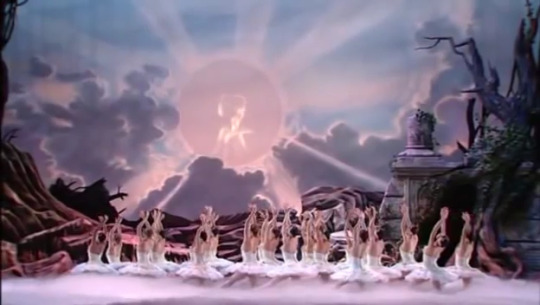
The apotheosis from American Ballet Theatre’s 2005 TV version of Swan Lake.
So, how do these stories relate to Man Wol and Chung Myung’s? Well, first, it’s clear from even the very first minutes of Hotel del Luna that Man Wol’s love with Chung Myung is bound to end poorly because the show opens with Man Wol being doomed to keep the Guest House of the Moon as a punishment for killing numerous people. The mystery that unfolds throughout the course of the show is exactly what drove her to kill so many, and the answers we’re given about Man Wol’s past are all tied to Go Chung Myung.
The inciting event that takes the place of the wife’s tragic death or husband’s infidelity is Chung Myung’s betrayal of Man Wol. Like Prince Siegfried, Chung Myung fails to pledge his troth to his true love and instead pledges his loyalties to the false-bride Song Hwa.
It is after this betrayal that Man Wol returns to her ‘enchanted’ form, that is, in contrast to the true self that the ‘prince’ Chung Myung had drawn out of her, Man Wol resumes her inauthentic aspect as ruthless bandit. After slaying the false-bride along with countless others, Man Wol becomes trapped in the Underworld (the Guest House), and her treacherous lover joins her shortly thereafter.

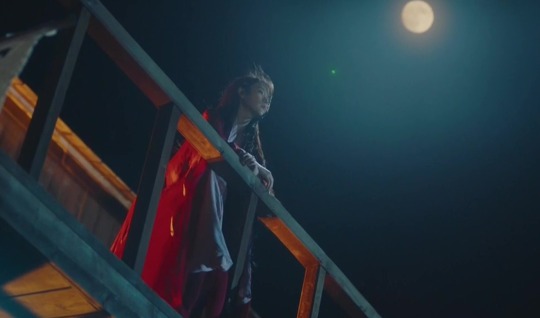
Chung Myung’s persistence in remaining at Man Wol’s side as well as Man Wol’s refusal to budge after all those years appeal to Mago, the ruler of this Underworld, and cause her to create the conditions that bring Koo Chan Sung to the hotel. It is Chan Sung’s entrance into Man Wol’s life that leads to her confronting her past and her eventual reunion with Chung Myung.
However, the power imbalance that we saw in Search for the Lost Husband tales is not entirely absent in their Quest for the Lost Bride counterparts. When Lost Bride tales are retold from a particular masculine perspective, the happy ending often predicates upon the husband successfully subjugating his wife rather than a marriage of two lovers as equals.
When Man Wol reunites with Go Chung Myung, he appears to her in his humble attire without his armor and says few words, accepting her decision to let go of her resentments toward him while she insists that it's time for him "move on" to the afterlife. Man Wol forgives Chung Myung, but she doesn't welcome him back with open arms, and subsequently declines his invitation to move on together. Chung Myung takes a more passive role in these interactions, so I don't really get the vibe that a happy ending between him and Man Wol would have predicated on him subjugating or dominating Man Wol. Man Wol is able to let go of her grudge toward Chung Myung, but they were ultimately unable to rekindle their love.
Alright, it's high time to wrap this up. On a closing note, I would like to say this is just one lens through which this story can be analyzed. My analysis focused on the historical subplot of Hotel Del Luna which is only one of its many concurrent storylines. You can easily read the overarching love story between Man Wol and Chan Sung as a gender-swapped Beauty and The Beast story with Man Wol as the cold and conceited "Beast" who holds Chan Sung's father hostage in episode 1 only to spare his life in exchange for his son's servitude, the Moon Tree as an analogue to the magical rose, and the Hotel del Luna serving as the Beast's enchanted palace.
I hope you enjoyed this long-winded meta, and if you made it this far, thanks for reading <3
#hotel del luna#hotel del luna meta#jang man wol#go chung myung#jang man wol x go chung myung#search for the lost husband#atu 425#eros and psyche#aarne-thompson-uther 425#animal as the bridegroom#fairy tale meta#sorry about the sepia filter on some of these gifs
3 notes
·
View notes
Text
Which is my favorite Kdrama network?
When I'm bored I like to list and categorize things. Today I've decided to discover, statistically, which Korean drama network is my favorite based on shows I've watched.
Including both shows I've completed and shows I've dropped bc in this case, the shows I don't like are relevant.
Using my ratings from MyDramaList :) which means however I felt the first time I finished watching a show, basically. Not including networks where I've only watched one show (e.g., Disney+, Wavve, Channel A).
JTBC:
Agency--Dropped
Beyond Evil--6
Itaewon Class--Dropped
My Country the New Age--10
Private Lives--Dropped
Reflection of You--Dropped
Sisyphus: The Myth--Dropped
I can't believe this network produced My Country the New Age when everything else I've watched by them has been a flop for me. Beyond Evil came the closest to breaking the curse but even then. Itaewon Class is one of my least favorite shows I've ever tried to watch; I've forgotten most of the details now but a bad taste lingers.
KBS:
White Christmas--10
Mad Dog--8
The King's Affection--10
River Where the Moon Rises--Dropped
Should I have given River Where the Moon Rises more of a chance? Bc apparently this network only makes bangers.
MBC:
Extraordinary You--7
Rookie Historian Goo Hae-ryung--9
The Veil--7
Idk what to say about this one. RHGH is pretty damn good but I think I would probs like it less watching it now than I did in 2019, newish to kdramas and ready to love anything. But it's a fave regardless, and Extraordinary You and The Veil are both fairly watchable. A serviceable network.
MBN:
Perfect Marriage Revenge--Dropped
Sponsor--Dropped
A network to watch a few episodes with the desire to see dogblood plots, and then leave.
Netflix:
Bloodhounds--8
My Holo Love--Dropped
Gyeongseong Creature--Dropped
Song of Bandits--8
The Silent Sea--7
It's Netflix. I don't know that they're ever going to make a real favorite for me but they're fairly competent.
OCN:
Save Me--8
Duel--Dropped
A Superior Day--Dropped
Apparently it takes Seo Ye-ji and Woo Do-hwan's powers combined to make me finish a show by this network. You'd think it would be easier bc they seem to enjoy angst and whump, but I think they pour it on a little too thick.
SBS:
Doctor Stranger--Dropped
Lovers of the Red Sky--8
Revenant--9
The King: Eternal Monarch--7
The Killing Vote--Dropped
Remember: War of the Son--Dropped
Honestly I might come back to at least one of these dropped shows. Their track record on plots is okay, but their actors are really good.
TVN:
100 Days My Prince--Dropped
Alchemy of Souls--9
Bad and Crazy--Dropped
Circle: Two Worlds Connected--9
Confession--6
Devil Judge--9
Eve--8
Flower of Evil--10
Hotel del Luna--Dropped
It's Okay to Not Be Okay--8
Mine--8
Mr. Sunshine--8
Our Blooming Youth--Dropped
Pandora: Beneath the Paradise--Dropped
Psychopath Diary--9
Tale of the Nine-Tailed--Dropped
Clearly I just start the most show by them. Do they make the most shows? I don't know. Good concepts and good cinematic quality on most of these shows, with just a few exceptions. Pretty solid network.
Viki:
Color Rush--8
I Picked Up a Star On the Road--6
Where Your Eyes Linger--8
You Make Me Dance--6
Mixed bag.
The takeaways:
I should probably watch more KBS. On my to-watch list, that translates to Youth of May, the Bridal Mask, Hwarang, the Bloody Heart, and Orange Marmalade. So mostly historical dramas, which is a pity bc apparently I also like their thrillers.
Really, though, my to-watch list at this point has a ton of SBS and MBC on it for some reason, at least with shows that have already come out. According to my stats so far, my odds are pretty mixed on liking them or not.
Somehow, one feels, I will actually end up watching more TVN instead... but that has yet to materialize. (except the one kdrama I'm currently watching is a TVN drama. so.)
Did I really learn anything? No. and on that note, good night.
7 notes
·
View notes
Text
i have been tagged to do a whole bunch of stuff by my beautiful friends, so it's all going into one big post ✌️ I APPRECIATE YOU GUYS SO MUCH, THANK YOU FOR THINKING OF ME FOR THESE 🤍
✨ which character are you personality quiz? ✨ tagged by @raplinenthusiasts!!
rules: take this test and present who you got as the characters most similar to you

does this mean i should watch locke & key...
✨ tag 9 people to get to know better! ✨ tagged by @garethsedwards
3 ships: yi-hyun/sae-bom (tvn happiness), jimmy/kim (better call saul), man-wol/chan-sung (hotel del luna) first ever ship: maybe harry/hermione? last song: "volcano" - han last movie: the wicker man (1973) currently reading: nothing at the moment, i'm still recovering from cujo... currently watching: literally 3 park hyungsik shows at the same time with @captainbobbiedraper - happiness, hwarang, strong woman do bong-soon currently consuming: peppermint tea currently craving: sleep
✨ when you get this you have to put 5 songs you actually listen to, then tag 10 people! ✨ tagged by @cordiallyfuturedwight
1. "tiger" - hoshi ft. tiger jk (seriously one of my top 10 kpop tracks ever...) 2. "dead end in tokyo" - man with a mission 3. "nightmare" - jihyo 4. "hair cut" - xdinary heroes 5. "寂寞号登机口" - jun
for any (or all) of these, i'm tagging @shinsabine @spicyclematis @taee @satellitemp4 @ugh-yoongi @moonlightstear @jeonwonwoo @tofiveohfive @matchingbees @nohshinwoos; MUCH LOVE 🥰
11 notes
·
View notes
Text
6 Recommended Korean Fantasy Dramas
6 Recommended Korean Fantasy Dramas
6 Recommended Korean Fantasy Dramas 1) Hotel Del Luna Hotel Del Luna is a tvN Saturday-Sunday drama that aired in 2019. It tells the special story of an elite hotelier who, through a fateful incident, takes over as the manager of Hotel Del Luna and runs Del Luna with its owner, who is as noble and beautiful as the moon but is eccentric.The main character, Jang Man-wol (IU), is the owner of…
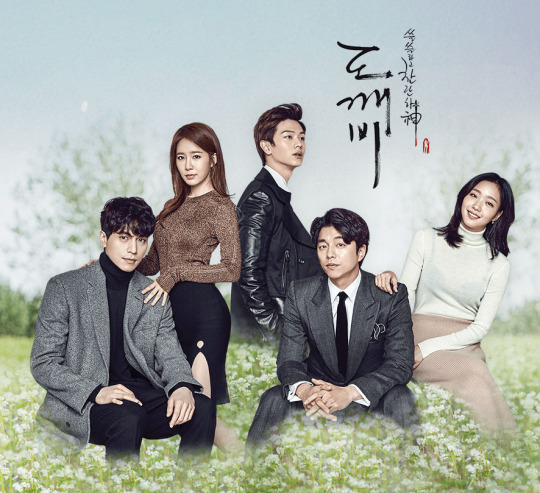
View On WordPress
0 notes
Text
Schau dir "[MV] 먼데이 키즈(Monday Kiz), 펀치(Punch) - Another Day (tvN 호텔 델루나 OST Part.1 Hotel Del Luna)" auf YouTube an
youtube
0 notes
Photo







36 notes
·
View notes
Text
reasons to watch hotel del luna
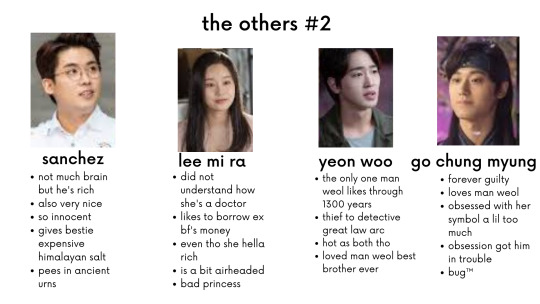





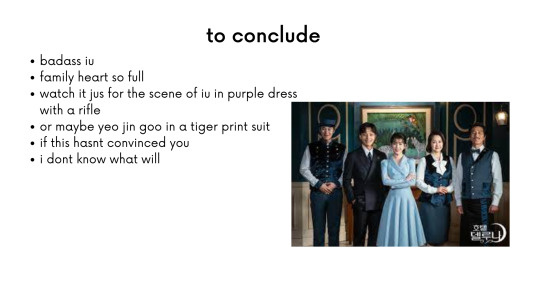
#kdrama#korean drama#kdrama review#review#kdrama text post#tvn netflix#iu#yeonwoo#hotel del luna#jang man wol#ku chan seong#yeo jin goo
62 notes
·
View notes
Text
My controversial Kdrama opinions
1. Ko Moon Young was just a psychologically messed up girl. She isn't the 'girlpower' or 'badass' that the Kdrama fandom likes to dub her into.
2. In 'Hotel del Luna', they could've just chucked the entire character of Gu Chansung out of the window and gave Chang Myung a rebirth/rebirths,make him go through various trials and tribulations to repent and earn Man Wol's forgiveness. Didn't have to make it unnecessarily tragic.
3. Unnecessarily tragic reminds me, the 'realistic' ending of 2521 was a JOKE. There was NO point of developing such a power couple if they were to break up for such a mundane reason.
4. Romance genre isn't Song Kang's 'thing'. He shines better as an actor in non-romance genres.
5. Had they focused on developing Ju Kyung as an individual character who finally learns how to completely take a stand for herself instead of dangling her between Suho and Seojun, 'True Beauty' would've become a more popular and appreciated drama.
6. The love line between Hwang InYeop and Seo Hyun Jin's character in 'Why her: Oh Soo Jae' was absolutely unnecessary and awkward.
7. Jo Bo Ah and Ahn Bo Hyun and an amazing chemistry in 'Military Prosecutor: Do Bae Man'. However, they could've developed a slowburn romance between them instead of abruptly putting a kiss sequence in the last episode out of nowhere.
8. In 'Snowdrop', Eun Young Ro forgiving Soo Ho later on didn't make sense. Their kiss sequence was purely fan service,nothing else.
9. Individual acting aside,Kim Hye Yoon had more chemistry with Lee Jae Wook(2nd lead) than Rowoon(main lead) in 'Extraordinary You'.
10. Writers are overusing 'Let's kill off the main character and make the show tragically memorable' trope wayyy too much.
11. As much as it physically hurts me given the chemistry of the actors,Choi Do Il and Oh In Joo not having any proper romantic sequence till the end of 'Little Women' makes sense to the storyline(the shipper me might've wanted a hug though).
12. Also the writers should stop doing the 'lets make the second lead better than the main lead'. Its annoying to see one person actually making sincere effort for the girl but the girl ends up totally ignoring their effort and like the ML. Not in just Kdramas but in all sorts of dramas. I actually saw a Chinese drama where the second lead finally turned into a villain. I LITERALLY commented 'good for him' lmao.
13. Sunho in 'Cheer Up' is problematic. Neither his sad backstory nor his sincere feelings for Haeyi changes that fact.
14. The Heirs(2013) drama wasted an opportunity to pair Young Do(Kim Woobin) with Yoo Rachel(Kim Jiwon). No, they didn't need to be 'siblings'. I'd have chosen the two heartbroken yet sassy and tough people romance over the sappy romance of the main couple in a heartbeat. And the actors would've NAILED it.
15. Jojo not ending up with Sunho in 'Love Alarm' finally broke the 'Cinderella and Prince Charming' fairytale trope of Kdramas. That girl was too messed up in the head . She didn't need the rich,fierce and impulsive lover, but the quite,patient and thoughtful one. So don't go ahead and say the ending sucked. Maybe they could've made things more coherent, but no the ending didn't suck.
16. Moon Dong Eun should have remained single, with the last episode ending with him crossing paths with Do Yeong, with Yeonjin & gang & all the revenge agenda gone, she could hv offered him a smile and a game of Go, keeping an open ending for them. Lee Do Hyun was fabulous in playing Yeojeong and their chemistry was amazing. But they could hv just been partners in crime with their teamwork without the romantic plot between them.
17. No. Ryu Shi Oh doesn't give second lead syndrome. Byun Woo Seok is a very good actor but he plays the villain in 'Strong Woman Kang Nam Soon' and not anti-hero. Lee Yoo Mi and him should be paired opposite to e/o in some other project in the future but Shi Oh and Nam Soon ain't the 'enemies to lovers' you think it is.
18. After Byun Woo Seok's popularity skyrocketed with 'Lovely Runner', many people dug up his previous works & lamented over not noticing him earlier. People even felt sad that he got his recognition late. But honestly, he wasn't very noticeable as an actor in his earlier stages imo. He kept working hard on his acting skills to get to where he is now. What I applaud about him is not giving up & putting the efforts in all right places but he didn't start from a 100.
19. I'm actually glad they brought back the fresh romcoms in 2024. Got tired of consistently watching crime thrillers,school violence,zombie apocalypse and stuff. I mean, of course they're good. But the key ingredient for Kdramas will always be those cringey classic slightly over-the-top romcoms.
20. Cha Eunwoo's acting in 'My ID is Gangnam Beauty' isn't as bad as people try to make it. His character actually demanded those stank cold expressions that he delivered. In fact, I'd say his character Do Kyeong Seok was one of the first Kdrama male leads that actually understood and empathised with the FL's situation and protected her in his own way without going over-the-top cliche "she is my yeoja and only I can bother her" about it.
21. In the 'No Gain, No Love' Kdrama, the romantic pairing of Ja Yeon and Gyu Hyun felt very forced to me. I was actually hoping for Hajun to shine instead of reducing him into just a 'former crush'. I'd rather have Hajun regretting looking down on an erotica novelist and leaving mean comment, sort things up with Ja Yeon and actually catch feelings for her respecting her as a person than this mishmash of 'Richman poor woman plus marrying my antifan' trope. The actors individually were great with their parts but I see them as in laws of the main couple ending on good terms rather than a romantic pairing itself. Ironically, this is the only second lead pairing that gets their own spinoff as leads.
#ko moon young#its okay not to be okay#kdrama#hotel del luna#yeo jin goo#lee do hyun#jang man wol#tvn 2521#song kang#true beauty#hwang inyeop#seo hyun jin#jo bo ah#ahn bo hyun#military prosecutor doberman#snowdrop#kim hyeyoon#lee jae wook#sf9 rowoon#sbs cheer up#the heirs#kim woobin#kim jiwon#love alarm#song hye kyo#the glory#byun woo seok#no gain no love#bok gyu hyun#nam ja yeon
278 notes
·
View notes
Photo


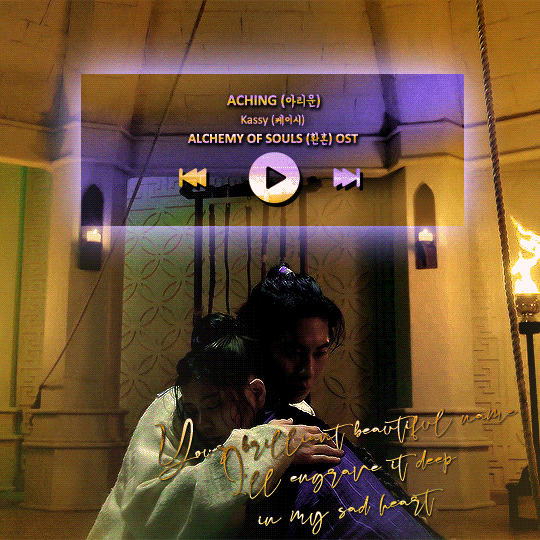





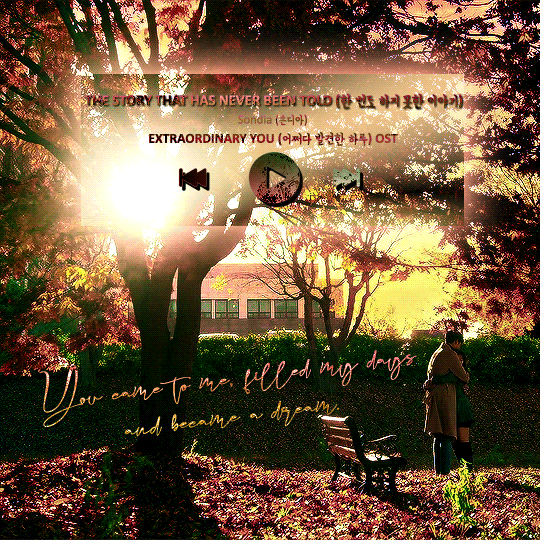

gif challenge | vs. @carolineeforbes round seventeen • kdramas + favorite original song(s)
Alchemy of Souls 환혼 (2022) Doom at Your Service 어느 날 우리 집 현관으로 멸망이 들어왔다 (2021) Extraordinary You 어쩌다 발견한 하루 (2019) Goblin 쓸쓸하고 찬란하神 – 도깨비 (2016) Hotel del Luna 호텔 델루나 (2019) The Tale of Nokdu 조선로코-녹두전 (2019) W 더블유 (2016)
#kdramaedit#asiancentral#kdramadaily#hotel del luna#extraordinary you#w two worlds#doom at your service#tvn goblin#the tale of nokdu#goblin#alchemy of souls#환혼#어느 날 우리 집 현관으로 멸망이 들어왔다#어쩌다 발견한 하루#쓸쓸하고 찬란하神 – 도깨비#조선로코-녹두전#호텔 델루나#더블유#anny vs mischa#*mine
123 notes
·
View notes
Text
Badass female characters in dramas
Yoo Ji Woo- My Name

Yoon Sae Bom- Happiness

Seo Yi Kyung- Sweet Home

Cha Soo Young- Tell Me What You Saw

Go Hae Ri- Vagabond

Cha Young Jin-Nobody Knows

Hong Cha Young- Vincenzo

Do Bong Soon- Strong Woman Do Bong Soon

Go Ae Shin- Mr Sunshine

Jang Man Wol- Hotel Del Luna

#kdrama#badass#female characters#netflix my name#tvn happiness#tell me what you saw#nobody knows#Vagabond#vincenzo#strong woman do bong soon#sweet home#mr sunshine#hotel del luna
307 notes
·
View notes
Text
My Favorite Supernatural K-Dramas for the Spooky Season
Spooky season is coming up and I wanted to make a list of my personal favorite K-Dramas with Halloween vibes.
Sorry for any zombie lovers out there who may happen to stumble on this list, I’m afraid that I’m not a fan of zombie movies/shows, so you’re literally not going to find any on this list.💔
Hotel Del Luna
I’m going to start this list off with the 2nd K-drama that I ever watched and it’s chocked full of ghosts (a whole hotel full!)
This is a K-Drama about Jang Man-wol, a female not-quite-ghost who is bound to a supernatural hotel for ghosts. At this hotel, the ghosts are taken care of so that they can eventually move on. One day, a living man ends up stumbling his way in to the hotel and attempts to steal from it. Man-wol catches him and ultimately spares his life, for a price. He has to give her his son when he reaches a certain age. Said son eventually gets brought in as the new manager for Hotel Del Luna and he eventually falls in love with Man-wol.
This drama can be a bit slow in places, but it’s really interesting and enjoyable in my opinion. You’ll definitely fall in love with all of the ghosts who work at Hotel Del Luna!
I found this drama hilarious at times and sad at other times, I 100% recommend having a box of tissues ready for the end of the show though, I know that I cried a lot after watching it for the first time. I was an emotional wreck and hid out in my room for a day because I didn’t want my family to know that I had cried that much.
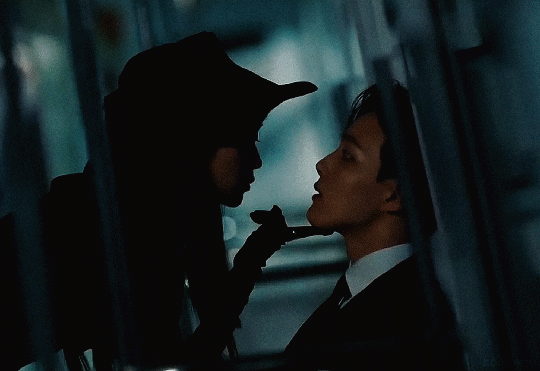
Blood
This is a vampire K-Drama and the only vampire one I’ve seen so far lol To be honest, I don’t even know if I’ve even ever heard of any other vampire K-Dramas. I found this drama’s take on vampires to be very interesting and I rather liked the creativity. Disclaimer though: I still have 7 episodes left to go of this show, but I still recommend it!
This drama is a rom-com medical drama that is about Jisang, a doctor who was born a vampire in a world in which a virus is what turns people into vampires. Jisang doesn’t drink blood and he has a good heart & moral compass, he and his friend/roommate are trying to find a cure for his vampirism. The female lead, Rita, is intrigued by him and wants to learn more about him as she suspects that something about him isn't normal.
I feel like this drama isn’t really well known, I certainly can’t find too many gifs for it here on tumblr and I don't see it used a lot in K-Drama edits on YouTube either lol The tiny blurb you find for this show on Viki and Kocowa really don’t help much in terms of getting attention or interest since they literally just say "A medical drama about a vampire doctor." Which, is true, but is very basic and bare-bones lol
This drama came out in 2015, so it probably seems like it was trying to get in on the vampire craze that swept the world after the hype of Twilight, but it’s definitely better than Twilight (it also has a better love story!). It also has one of my favorite tropes where the romantic leads met as kids.

Happiness
Quite possibly the only zombie-esque show that will ever wind up on any of my list since I don’t like zombies lol
This wonderful show is about a fake married battle couple who scored a sweet sweet deal on an apartment just before the zombie pandemic breaks out because the female lead Yoon Sae Bom got enough points due to her job performance and also getting fake married to her friend since high school, Jung Yi Hyun (who has been in love with her since literally falling for her in high school).
Honestly, someone experienced the pandemic and was like: This, but zombies.
Anyway, this show has just the right mix of slight horror elements, social commentary, fluff, humor, heart, found family elements, capped off with a delicious slow-burn friends to lovers story arc.

My Roommate Is A Gumiho
Making a return appearance on one of my lists, is this show. Can you tell that I love it?
On top of the supernatural element already present in this drama with there being a Gumiho as the first male lead and an ex-Gumiho as the second female lead, there's also some horror-y scenes early on in this show which feel perfect for the spooky season.
Overall though, this drama is pretty light and extremely funny, so if you're looking for something softer to enjoy during spooky season, this drama could fit the bill!

Goblin: The Great & Lonely God
This drama is considered a classic for anyone to watch I think. This show has great autumn vibes that are perfect for the season and it’s a cute, funny show, also heartwarming and heartbreaking.
You’ve got ghosts, grim reapers, some gods(?) and our Goblin.

The Sound of Magic
This is potentially a weird drama to add on this, but since my lists are limited to what I have seen so far, this is getting added for reasons lol
This drama is a musical and is available on Netflix. To really briefly summarize this show, it's about a girl who had to grow up too quickly because she has to support both herself and her younger sister, who were abandoned by her dad who is running away from loan sharks. She happens to meet a magician who never really grew up (and likes it that way) and appears to perform real magic!
It's an interesting drama which is definitely worth the watch! It's got some scary/horror-y elements to it, so that's why I'm including it on this list. The show only has 6 episodes, each at an hour long, so you could finish this show in less than a day.
Doom At Your Service
I'm gonna say that I'm including this because Doom is essentially like the grim reaper, but more? He’s the embodiment of death and destruction and he can be pretty scary. He's especially scary in episode 12.
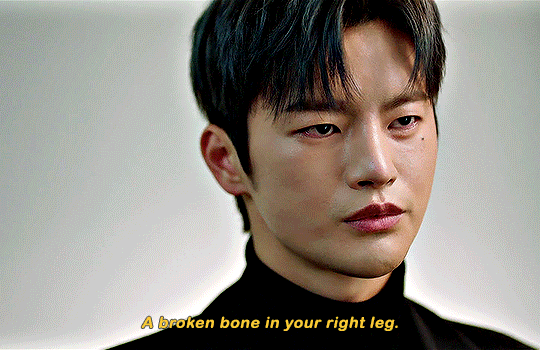
Some Supernatural K-Dramas On My List To Watch:
Adding this section just to highlight some dramas that I know of that also fit this list. While I haven’t seen them yet, I am interested in seeing them over the course of this spooky season!
Bring It On, Ghost
A drama about a college student who can see and communicate with ghosts and decides to use those skills to work as a exorcist to earn some extra money.
Oh My Ghostess
I would be lying if I said that this wasn’t on my list because of a bias’s cameo in the show (that bias is Seo In Guk).
Anyway, this show is about a “painfully shy and timid” woman who has the ability to see ghosts and works as an assistant chef at a restaurant whose star chef she happens to have a crush on. She ends up being possessed by the ghost of a young woman who died without ever having experienced any romance in her short life, so she basically wants to live vicariously through the female lead.
Master’s Sun
A K-Drama that is very basically about a woman who can see ghosts, but suddenly can’t whenever she happens to touch this one rich guy. Due to this, she tries to stick around him so she doesn’t have to see ghosts.
I’ll be honest, I have only considered watching this show because of Seo In Guk. I made it a goal to watch as much of my bias’ filmographies as humanly possible.
The Guest
Something that was suggested to me, it’s a little out of my comfort zone, but it seems pretty interesting, so I’m willing to give it a go! This K-Drama is about three people who are bound together by a tragic past: a psychic, a priest and a detective. Together, they work to bring down a powerful, bloodthirsty spirit.
Kissable Lips
I came across this K-Drama on Viki, it’s a short 8 episode long BL drama about a vampire who is tired of being a vampire, but the only way to bring an end to his immortal existence is to drink the blood of a pure human in order to become human himself. Apparently, pure blood humans are incredibly rare, but he manages to find one, who is clueless about the fact that he is one.
Apparently there’s also a love triangle (I guess I’ll just have to grin and bear it), but otherwise this seems like a pretty interesting show and I’m willing to kill like an hour and a half watching it for the sake of the spooky season lol You can watch it as episodes or as a movie apparently.
Sell Your Haunted House
This is a K-Drama about a woman who is the owner of a realtor company that specializes in selling haunted houses as she happens to have inherited exorcism abilities from her mother. She ends up teaming up some conman who suggests that they start exclusively selling houses which are haunted by vengeful spirits and lingering ghosts.
This is a romantic comedy with what sounds like an interesting premise, so I’m willing to give it a go!
#kdrama recs#kdrama recommendations#kdramas#kdrama#doom at your service#my roommate is a gumiho#hotel del luna#blood kdrama#happiness tvn#goblin the lonely and great god#the sound of magic#bring it on ghost#oh my ghostess#the guest#kissable lips#sell your haunted house
37 notes
·
View notes
Text

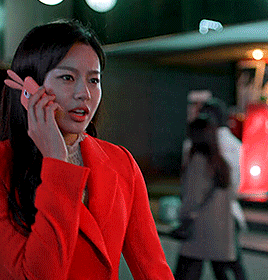
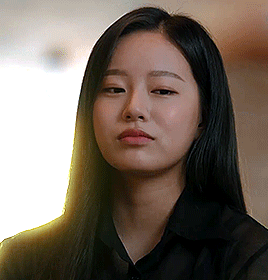
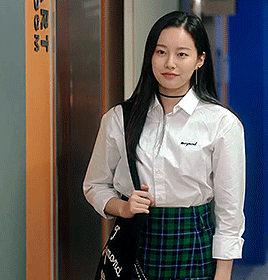

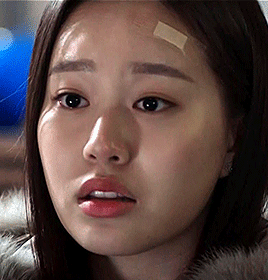
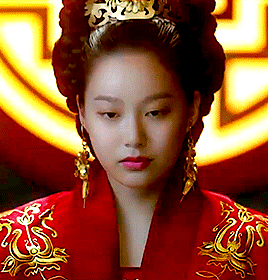


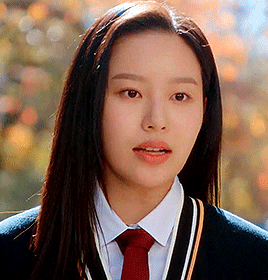
Park Yoo Na in Secret Forest, My ID is Gangnam Beauty, SKY Castle, Hotel del Luna, True Beauty
#park yoo na#kdramaedit#true beauty#hotel del luna#sky castle#my id is gangnam beauty#secret forest#tvn stranger#kdrama#dramaland#drama gif#my dramaland edits#m: sky castle#m: true beauty#m: hotel del luna#m: my id is gangnam beauty#m: secret forest#I don't know how to gif anymore lol#it took me a while to figure out how to work with ps#but park yoo na made me do it!#I started true beauty for her#and working on this set even made mo postpone starting with taxi driver#in order to get used to giffing again before hospital playlist 2 starts...#...maybe I will make some more PYN gifs#just with her from the above dramas (sans hotel del luna)#(because I don't have that one on my drive anymore)#(and for this set I downloaded youtube videos)#(which I think you can notice because the hotel del luna gifs are the worst quality???!)
604 notes
·
View notes